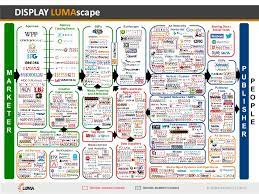Thread
This web3 shit is starting to annoy me, so here’s a thread with my opinions on the relevance to media and advertising. 1/21 🧵
To start, a lot of the posturing around the impact of web3 is frustratingly vague, and so therefore hard to refute. The central premise is that using the economic incentives of tokens, you can bootstrap and maintain decentralized services. 2/21
That’s already pretty vague. Clearly there’s an enemy in mind, the centralized winners of web2: Google, Facebook, etc. 3/21
So let’s walk through the various components of media, and see how decentralization or tokenization might or might not apply. 4/21
Media creation is already decentralized, that was the great innovation of web2. With a couple of clicks you can create a blog, storefront, or whatever media you want. 5/21
The problem is that very few people will ever see your media unless you also distribute it, and that’s where the tech giants have a huge role and take their vig. 6/21
The reason Facebook, YouTube, Twitter and others control distribution of media is because consumers LOVE these services. They are hard to build, expensive to maintain, and have strong network effects. 7/21
The web3 promise to decentralize media distribution ignores the need to attract hundreds of millions of consumers based around a vague promise of freedom. The only benefit to a web3 media distribution is for content that is banned or restricted on the current platforms. 8/21
“But what if you’re paid for your data” – anonymous Greek philosopher, circa 350 B.C. 9/21
Discussions of web3 always head towards the idea that consumers will adopt new ways of consuming media that will compensate them for their data. There are some companies trying to do this (@PermissionIO). It’s got a lot of problems, and doesn’t require web3. 10/21
@PermissionIO Problems with “pay for your data”: 1) It isn’t worth very much; 2) It is worth the most to the big web2 companies that already have it; 11/21
@PermissionIO 3) This concept appeals to the least valuable consumers; 4) specific data points (“I’m ready to buy a car”) are vastly more valuable than generic data, and you can get that data more efficiently through lead-gen tactics. 11/21 cont.
@PermissionIO And even if you wanted to execute a scheme where you pay for user data, just do that in a SQL database (AllAdvantage anyone?). Why have a token with high gas prices, fluctuating value, complexity, etc. 12/21
@PermissionIO And again if you really want to execute a scheme to pay for user data, it makes sense to do it at the browser level (Brave) rather than at the execution level in a new social network or media company that will only have part of the consumer’s overall attention. 13/21
@PermissionIO Let’s move on to the ads themselves. For a media company, like a newspaper or local broadcaster, the advertising ecosystem is already hugely decentralized – and that’s a big part of the problem. 14/21
@PermissionIO Have you seen the Lumascape? Does that look centralized? 15/21
@PermissionIO web3 proponents will say things like “web3 will clean up the mess that Google and others have created in advertising”. No. 16/21
@PermissionIO Any rational person looking at the experiences of consumers on Instagram, YouTube, TikTok, and other “centralized” web2 sites will notice that the ads are actually really good. They don’t overwhelm the consumer, are often relevant, and don’t mess up the content. 17/21
@PermissionIO In contrast, when you visit a newspaper website you are bombarded with poorly targeted garbage that makes the content hard to read, revs your CPU, and disrespects the user. That’s the decentralized, ad hoc ad tech stack. 18/21
@PermissionIO Zooming out, why would you expect anything else out of the religion of decentralization? Having many competing services that are mashed together however any party chooses will naturally be messy and difficult, across all web3 initiatives. 19/21
@PermissionIO There may be very specific areas where web3 projects intersect with the media/advertising landscape and add value. Single sign-on using NFTs. Verification of advertising transaction counter-parties. I’ll wait and see. 20/21
@PermissionIO But in general:
-The problem of concentration in media is caused by consumer choice.
-Paying consumers to change their behavior is IMHO not going to happen at scale.
-Decentralization is literally the last thing ad tech needs.
21/21.
-The problem of concentration in media is caused by consumer choice.
-Paying consumers to change their behavior is IMHO not going to happen at scale.
-Decentralization is literally the last thing ad tech needs.
21/21.
Mentions
See All
Gigi @dergigi
·
Dec 25, 2021
That's actually a good thread.
Bart Mol @Bart_Mol
·
Dec 25, 2021
Good thread.
Edward Hollander @edazcona
·
Dec 25, 2021
Worth reading! 👇🏻👇🏻
